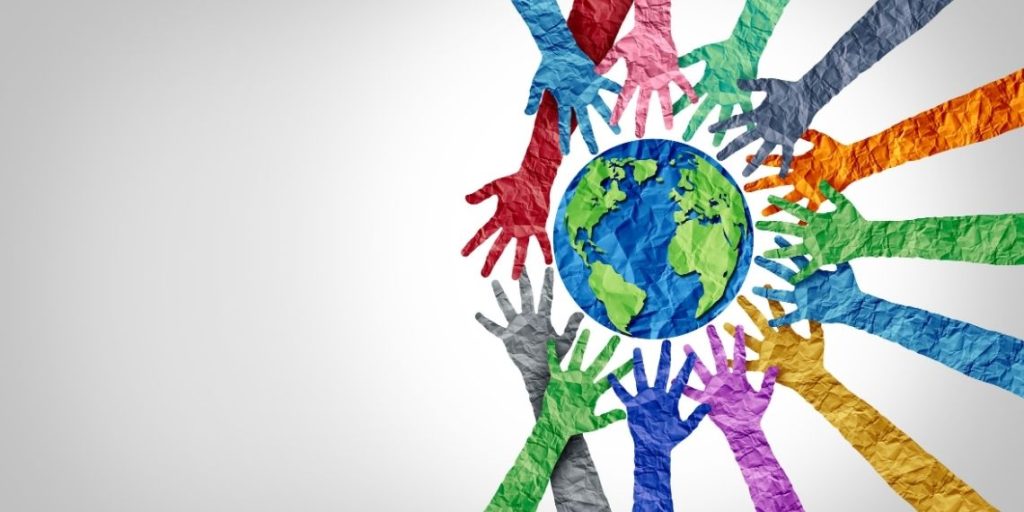Cultural competence is the name of the game here, which describes the ability to interact with, be glad, and understand people that come from cultures different from one another. First and foremost, it means to be able to see and honor differences in culture, belief, and behavior in every single person for the sake of mutual understanding and efficiency. Equality is about everyone having a fair opportunity. It means their right to the use of resources is outlined and they can get it regardless of their other backgrounds or attributes.
As the world is becoming more and more interconnected, we need cultural competence and equity so that the cooperation is built with such a virtuous cycle where everyone thrives. To be specific, ideological concepts are instrumental to the formation of a rapport where there can be zero stress on everyone’s life course. Traditionally, societies have shown their weaknesses in dealing with matters of discrimination, prejudice, and inequality. In contrast to the past, however, they are more and more willing to change their ways and adopt different rounds.
They are also taking the initiative to create justice and peace through the promotion of equity.
The arduous road that many of us have to take toward cultural competence and equity is neither closed at times nor short but it is an uphill still we have to climb with a sustained learning, self-awareness, and warning. By acquiring these abilities, individuals and organizations bring about making places where people of different backgrounds live together in an open and equal society.
Table of Contents

Key Components of Cultural Competence
Cultural competence is made up of a few key pieces:
Awareness
The first level of awareness is all about figuring out what your own cultural background, your stereotypes/hearsay, and your assumptions say about you. These will help you understand how they all influence interactions with others and support you in learning about the numerous cultures around the world.
Knowledge
The second step is information-getting, which in this case, means going for learning about diverse cultures, beliefs, and values. Solving this issue involves arousing their curiosity to kindle and to elicit more stories and experiences.
Skills
Skills are the ability to communicate and interact effectively with individuals from different cultural backgrounds. This also involves active listening, empathy, and adaptability in diverse settings.
Attitudes
Attitudes are the respect to diversity and the acknowledgment of the value of the cultural pluralism of individuals. It is necessary to be open-minded and non-judgmental. Moreover, it implies having a commitment to promoting inclusion and equity.

Importance of Equity in Various Fields
Equity is fundamental for the existence of all sectors, in order to secure the fair treatment of all and the creation of equal opportunities for everyone:
Education
Equity in education is when all students get access to not only the same but high-quality education and materials, regardless of their financial status, race, or ethnicity. It is about drawing attention to disparities in funding, curriculum, and support services implemented to design an accessible learning environment.
Healthcare
Equity in the field of health care is mainly addressing the aspect of providing quality treatment to all regardless of their background or financial status. This requires tackling language differences, cultural misunderstandings, and social determinants of health so as to provide all with equal health care services.
Workplace
In the workplace, equity entails the creation of an environment that is inclusive where all employees can find both equal opportunities for growth and success. This involves fair hiring policies, provision of cultural competence training, and support of diversity and inclusion activities.
Community Services
Community Services wherein equity is the basic function is about the community ensuring that all of its members get to access essential things and receive the necessary help from others. Doing so is to cater to the barriers that deter the people from getting the services, deliver culturally sensitive services and fight for policies that help in social justice.

Benefits of Cultural Competence and Equity
The advantages of cultural competency and equality include:
Enhanced Relationships
Cultural competency and equality create a more friendly and better relationship by making people appreciate and understand the diversity of each other as well as be compassionate to the rest of the community.
Improved Collaboration
The inclusive setting that reinforces mutual respect and acceptance is the best platform to encourage a free flow of ideas and opinions, thus, this environment is certain to promote collaborative and strong team building.
Increased Innovation
Introducing different cultures and equity is the major contributor to creativity and innovation. They form a platform for the birth of different ideas, bring together different experiences, and viewpoints. Thus, with multidisciplinarity, one can solve complex problems and as a result, can improve creativity..
Greater Social Justice
We become part of the social justice movement by enhancing cultural competence and equity. It is a long and difficult task that is accomplished through fighting against the inequalities that are deeply rooted in the system and pushing for the rights and opportunities of all.
Strategies for Developing Cultural Competence
Demonstrating cultural competence requires intentional practice and commitment:
Educate Yourself
Find new sources and opportunities in order to learn about different cultural, historical, and social problems. It can be time well spent reading and attending seminars, etc., along with dialoguing with people of different backgrounds.
Reflect on Your Biases
Reflection is a kind of meditation where a person thinks about his/her own actions from a distance. It means to reflect and determine whether our biases and assumptions are accurate. This means to be truthful to oneself and ask for feedback from others in order to get new points of view.
Build Relationships
Establish meaningful connections with people who come from different backgrounds. It is important to engage in the process of active listening, show empathy, and respect their identities and point of views to be full participants in deep relationships.
Advocate for Equity
Promote equality in your life, both professionally and personally, by supporting equal policies and practices and by being an advocate for the open and fair communities. This means questioning biased attitudes and assisting activities that pursue social justice.

Future of Cultural Competence and Equity
In the future, cultural competence as well as equity will remain the key themes in the world of public education. Conflict Resolution With the growth of diverse societies, the need for cultural competence and equity will rise continually. Developing these principles will be a cornerstone for a truly inclusive society and for social justice to be achieved.
Therefore, organizations and individuals should give priority to continuous learning and strive to break down systemic inequalities to achieve a more equitable future.To sum up, cultural competence and equity are prerequisites of building inclusive societies and driving social justice. Through appreciating and respecting differences, individuals and organizations can build the type of environment where all members are able to make a worthwhile and positive contribution to the society.














